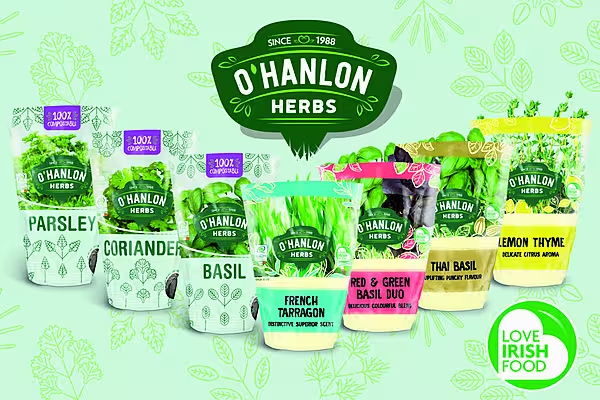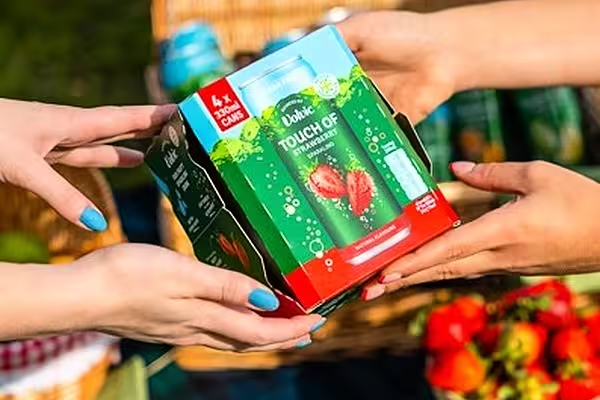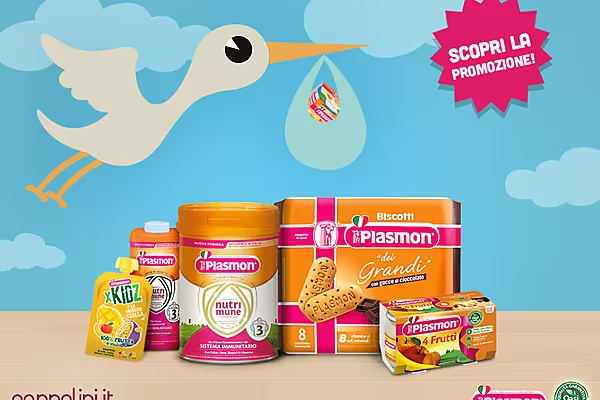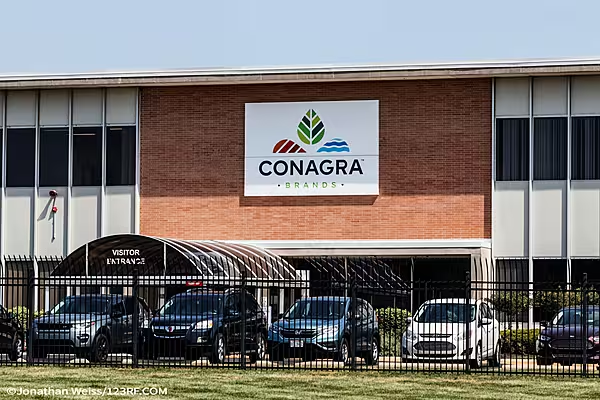O’Hanlon Herbs have been growing and supplying fresh herbs to Irish retailers since 1988. Managing director Tom O’Hanlon talks to Maev Martin about the Irish consumer’s growing love affair with fresh herbs and the company’s latest NPD initiative with Love Irish Food.
O’Hanlon Herbs business journey began in a small suburban back garden in Co Dublin, where they provided fresh potted herbs to markets.
Within four years, the operation moved to a greenfield site in Glenealy, Co Wicklow where they began commercial herb production to meet growing consumer demand.
They then trialled their products with a major retailer, which led to the brand taking up permanent residency on the retailer’s shelves.
“This was the first time that Irish consumers had a chance to see fresh herbs in the shop window!” said O’Hanlon.
The new millennium brought with it a growing interest in herb usage among consumers and by 2008 O’Hanlon Herbs was producing 30,000 pots per week.
“We soon realised that we were outgrowing our set-up, so in 2008 we invested in a state-of-the-art glasshouse on site in Glenealy, which gave us complete control over temperature, light and water,” he says.
“Since then, we have expanded three times – in 2012, 2015 and 2021 – with new glasshouses and a cut herb packhouse, where we pack using sustainably sourced cut herbs.”
Today, O’Hanlon Herbs’ potted herb production process is in modern glasshouses that include specialist LED lighting.
The company also deploys irrigation systems that recirculate the water and sustainable heating, which is sourced from local woodchip.
“We operate with one hectare under glass, and we produce four million potted herbs and package over six million cut herb packets per year for all the main retailers, as well as independent stores and the foodservice sector,” said O’Hanlon.
New Product Development
O’Hanlon Herbs’ product range includes the mainstay herbs, such as coriander, parsley, and basil, as well as a wider range that includes chives, dill, mint, rosemary, sage, and thyme to suit all culinary tastes.
However, the business is keen to increase its new product development and innovation.
With that in mind, it is currently developing new lines of potted herbs such as lemon thyme, Thai basil, and a product that combines red and green basil, as well as French tarragon.
These new lines are being developed under the Love Irish Food umbrella and the O’Hanlon Herbs own brand
“We regard Bord Bia Bloom, Ireland’s largest gardening festival, as our annual test bed for innovation,” said O’Hanlon.
“We take a stand there every year and we showcase our more extensive range.
"At Bloom, we get valuable insights directly from consumers and one of the major insights that we have gleaned is the continuing consumer demand for hard-to-source ethnic ingredients such as Thai basil, which we hope to introduce shortly to supermarket shelves.
"Mint has also proven to be a winner with consumers, who are particularly interested in peppermint and exotic mints for herb teas and cocktail mixers.”
A Good Habit
According to Tom, Irish consumers use of fresh herbs has become more habitual rather than something they buy for a special occasion.
“We are seeing that demand for our products has become much more regular, running over a seven-day period, which indicates that consumers are incorporating herbs into everyday meals, as well as including them in longer and more elaborate weekend cooking occasions or social events,” he says.
“The use of fresh herbs can be habit forming, as people adopt a range of recipes that typically include herbs, either for flavour or garnish or both.
"The rise of Instagram and social media recipe bloggers has also driven demand across a younger age profile.
"This isn’t surprising, as younger age groups are typically more experimental and open to new habits.”
The fresh but perishable nature of fresh herbs is a challenge for both the business and the consumer.
However, Tom says that O’Hanlon Herbs has always been focused on quality with the aim of improving the consistency, flavour, and appearance of its product.
“Customers have become more accustomed to handling living herbs,” he says.
“For some customers, that may mean using them straight away, while for others, who administer a bit of tender loving care, a longer herb life can be achieved, especially in more favourable spring and summer conditions.”
Sustainability
As a member of Origin Green, sustainability is an integral part of the O’Hanlon Herbs business.
“Sustainability is very important to us, and we are making a positive impact on the environment in several aspects of our operations,” said O’Hanlon.
When it comes to packaging, O’Hanlon Herbs has dispensed with some single use plastics by making paper packaging available to the market.
The company also has a branded and TUV Austria certified 100% compostable pot herb sleeve, which also displaces the necessity for the plastic pot.
“Our minimum aim is that all our products are in at least recyclable material, and we communicate this on all our packaging,” he said.
“100% of our potted product packaging materials have recyclable or compostable credentials, with roughly 50% of our products having materials that naturally break down or compost, with the balance still requiring consumers to separate for the remaining recyclable elements.
"We are aiming to continuously improve this situation through our membership of Origin Green, which tracks and records packaging usage and reduction targets.”
O’Hanlon Herbs state-of-the-art glasshouses are set up to harvest rainwater, which is stored in harvest tanks on site, and they use this for some of their on-site washing.
“This allows us to minimise the impact we have on the local water sources,” said O’Hanlon.
“Our internal systems are fine-tuned so we can control every litre of water in the system, which is used, recycled, and re-used.”
Being an herb grower in Ireland brings challenges in terms of heating and lighting, especially in these dark and dreary winter months.
O’Hanlon Herbs’ glasshouses were originally designed with an oil-based heating system, but a few years ago they replaced this system with a woodchip burner.
“This reduced our need for oil by 100%, while supporting local woodchip producers and reducing our environmental impact,” he says.
Yet another of the many sustainability goals that the company has set itself was achieved recently when it became the fresh herb partner for FoodCloud.
This involves the company delivering a weekly consignment of fresh herbs to the FoodCloud depot that would otherwise be surplus to requirements and end up as business waste.
“FoodCloud chefs incorporate these herbs into their recipes,” said O’Hanlon.
Locally, the business contributes compost to Glenealy Tidy Towns and supports the funding of a local horticulture course, as well as facilitating student horticultural visits to its operations.
O’Hanlon Herbs also has wildflower areas on its Glenealy site.
“This looks incredible in season, and allows pollinators such as honeybees, solitary bees, bumblebees, hoverflies, beetles, and many more to thrive in our marginal areas,” he says.
“We have plans to increase the areas covered by wildflowers in the near future, which will add a lot to the biodiversity on site.”
Love Irish Food
As a local Irish food business, O’Hanlon Herbs has been a member of the Love Irish Food organisation since its early days.
“We always regarded Love Irish Food as an important way for us to get the message across to consumers that our product was locally produced,” said O’Hanlon.
“We are proud to be members of Love Irish Food and the business continues to extend its range of Love Irish Food-labelled products.”









